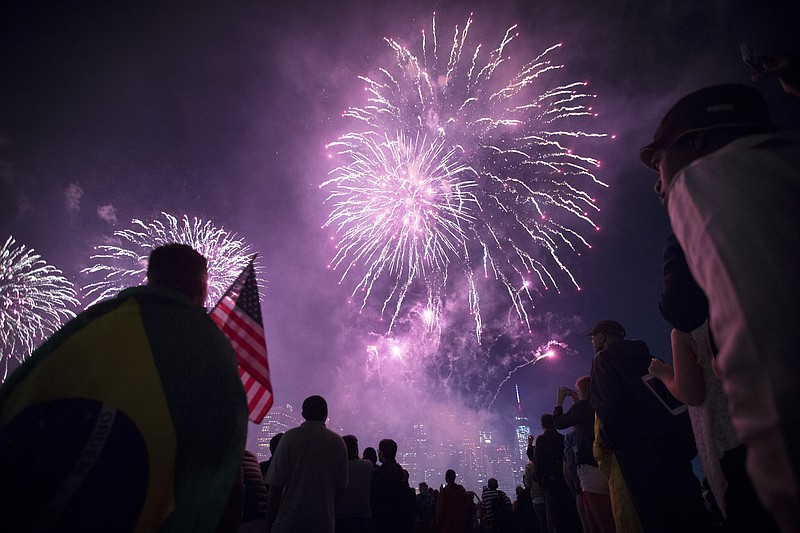NEW YORK (AP) - July Fourth fireworks fill the skies with more than sparkling bursts of color. A study says they spew pollution, too.
Researchers who checked 315 locations around the country found that the explosions temporarily boosted the levels of airborne microscopic particles.
The levels were more than twice normal at 9 p.m. and 10 p.m. on July 4. They tapered off overnight and fell back to normal by noon on July 5.
Other studies show inhaling such particles can cause a health risk. The new study didn't look for health effects.
But the Environmental Protection Agency says children, older adults, and people with heart disease, asthma or other lung diseases are considered to be particularly sensitive to particle pollution. The agency recommends that they watch fireworks from upwind.
